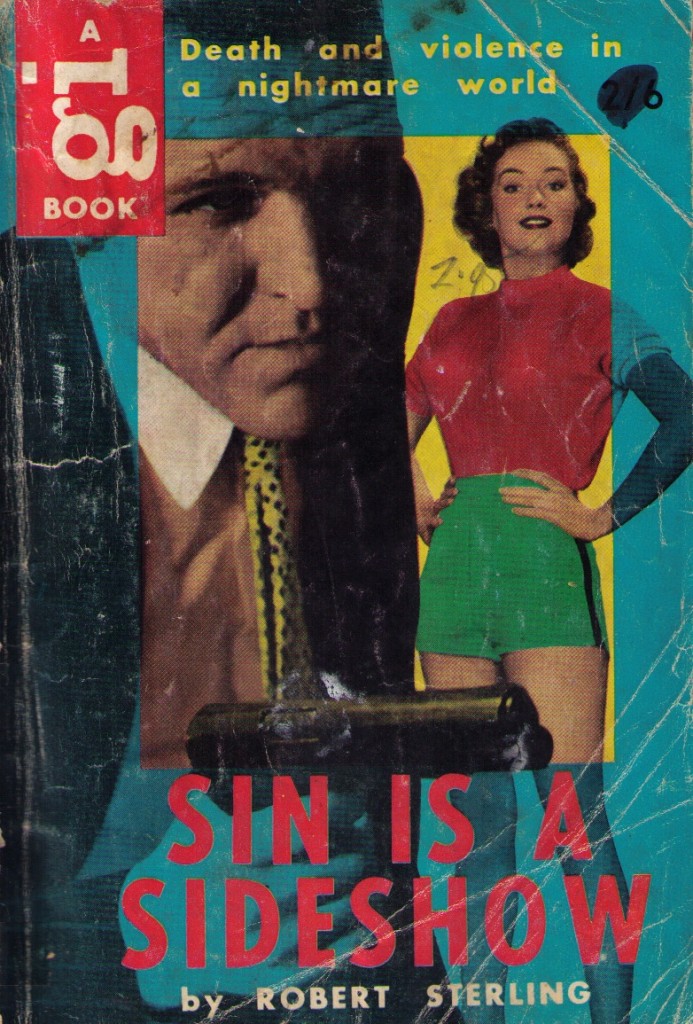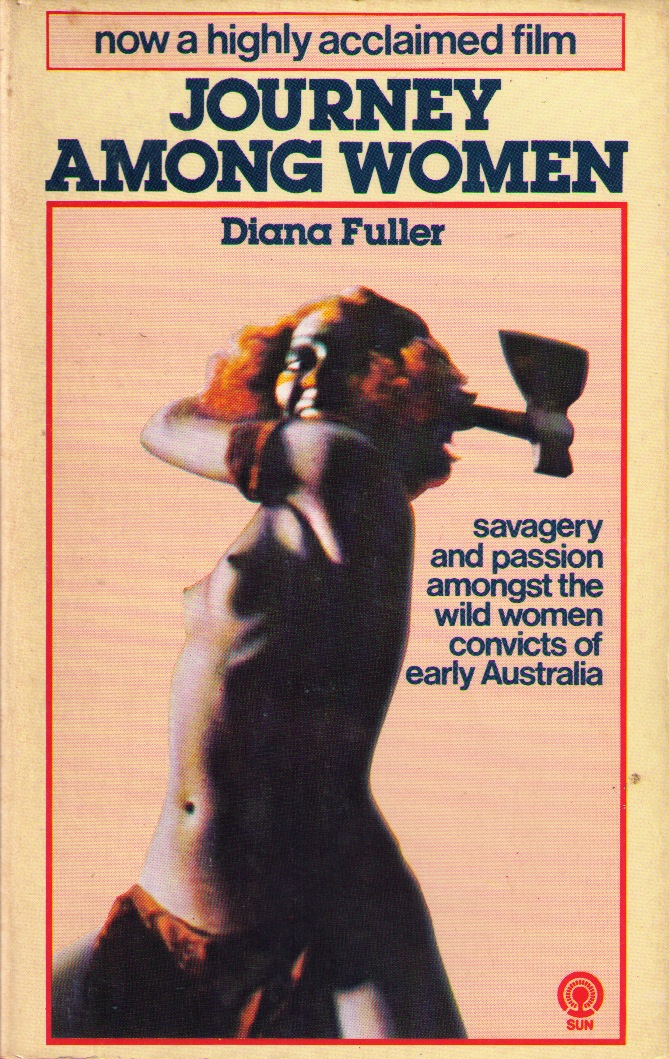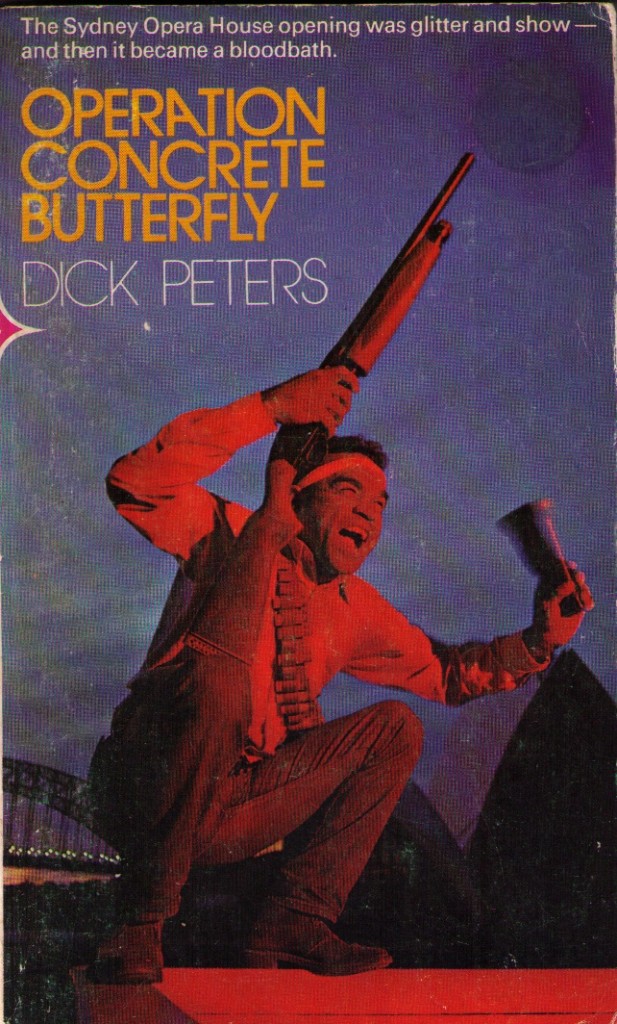Search
-
Recent Posts
- Dishing up Pulp Curry in a new way: why I am starting a Substack newsletter
- Book reviews: Deadly dames, midcentury Brit pulp and 1970s science fiction
- Mackenna’s Gold (1969): Gold, Ghosts and Frontier Violence
- Orphan Road book launch
- Orphan Road now available
- Pre-orders open for my new novel, Orphan Road
- Cover reveal: Orphan Road, my follow up to Gunshine State
- Breakfast in the Ruins podcast: New English Library Bikermania
- Why 1973 was the year Sidney Lumet took on police corruption
- Men’s Adventure Quarterly: Gang Girls issue
Categories
- 1960s American crime films
- 1970s American crime films
- 1980s American crime films
- 1990s American crime films
- Adrian McKinty
- Albert Dekker
- Andre De Toth
- Angela Savage
- Angie Dickinson
- Anthony Zerbe
- Asian noir
- Australian crime fiction
- Australian crime film
- Australian noir
- Australian popular culture
- Australian pulp fiction
- Australian television history
- Ava Gardner
- Beat culture
- Belmont Tower Books
- Ben Wheatley
- Billie Whitelaw
- Black pulp fiction
- Blaxsploitation
- Book cover design
- Book Reviews
- British crime cinema
- British pulp fiction
- Bryan Brown
- Burt Lancaster
- Carter Brown
- Charles Durning
- Charles Willeford
- Chester Himes
- Christopher G Moore
- Christopher Lee
- Cinema culture
- Claude Atkins
- Coronet Books
- Crawford Productions
- Crime Factory
- Crime Factory Publications
- Crime fiction
- Crime fiction and film from Africa
- Crime fiction and film from Cambodia
- Crime fiction and film from China
- Crime fiction and film from India
- Crime fiction and film from Indonesia
- Crime fiction and film from Japan
- Crime fiction and film from Laos
- Crime fiction and film from Latin and Central America
- Crime fiction and film from Malaysia
- Crime fiction and film from New Zealand
- Crime fiction and film from Scandinavia
- Crime fiction and film from Singapore
- Crime fiction and film from South Korea
- Crime fiction and film from Thailand
- Crime fiction and film from the Philippines
- Crime Fiction and film set in Vietnam
- Crime film
- Dangerous Visions and New Worlds Radical Science Fiction 1950 to 1985
- David Goodis
- David Peace
- David Whish-Wilson
- Derek Raymond
- Diana Dors
- Dirk Bogarde
- Don Siegel
- Don Winslow
- Donald Westlake aka Richard Stark
- Dystopian cinema
- Ernest Borgnine
- Eurocrime
- Fawcett Gold Medal Books
- Femme fatale
- Fernando Di Leo
- Filipino genre films
- Film Noir
- Forgotten Melbourne
- French cinema
- French crime fiction
- Garry Disher
- Gene Hackman
- George V Higgins
- Georges Simenon
- Ghost Money
- Giallo cinema
- Gil Brewer
- Girl Gangs, Biker Boys and Real Cool Cats: Pulp Fiction & Youth Culture, 1950-1980
- Gloria Grahame
- Gold Star Publications
- Gregory Peck
- Gunshine State
- Heist films
- Horror
- Horwitz Publications
- Humphrey Bogart
- Ian Fleming
- Interviews
- Ira Levin
- James Caan
- James Crumley
- James Ellroy
- James Hadley Chase
- James Woods
- Jim Brown
- Jim Thompson
- Joel Edgerton
- John Frankenheimer
- Joseph Losey
- Karen Black
- Kerry Greenwood
- Kinji Fukasaku
- Larry Kent
- Laura Elizabeth Woolett
- Lee Marvin
- Leigh Redhead
- Lindy Cameron
- M Emmet Walsh
- Mad Max
- Mafia
- Malla Nunn
- Martin Limon
- Megan Abbott
- Melbourne International Film Festival
- Melbourne Writers Festival
- Men's Adventure Magazines
- Michael Caine
- Michael Fassbender
- Mickey Spillane
- Monarch Books
- Ned Kelly Awards
- Neo Noir
- New English Library
- Newton Thornburg
- Noir Con
- Noir fiction
- Non-crime reviews
- Oren Moverman
- Orphan Road
- Ozsploitation
- Pan Books
- Parker
- Paul Newman
- Peter Boyle
- Peter Corris
- Peter Strickland
- Peter Yates
- Poliziotteschi
- Pulp fiction
- Pulp fiction in the 70s and 80s
- Pulp fiction set in Asia
- Pulp Friday
- Pulp paperback cover art
- Qui Xiaolong
- Raymond Chandler
- Richard Burton
- Richard Conte
- Robert Aldrich
- Robert Mitchum
- Robert Ryan
- Robert Stone
- Rock Hudson
- Roger Smith
- Rollerball
- Rosaleen Norton
- Roy Scheider
- Rural noir
- Sam Levene
- Sam Peckinpah
- Samuel Fuller
- Science fiction and fantasy
- Scripts Publications
- Sidney Lumet
- Sidney Poitier
- Simon Harvester
- Snowtown
- Snubnose Press
- Spies
- Stanley Baker
- Sterling Hayden
- Steve McQueen
- Sticking it the the Man Revolution and Counter Culture in Pulp and Popular Fiction 1950 1980
- Stuart Rosenberg
- Tandem Books
- Tart noir
- Tartan Noir
- Ted Lewis
- Toni Johnson Woods
- True crime
- Vicki Hendricks
- Victor Mature
- Vintage mug shots
- Vintage pulp paperback covers
- Wallace Stroby
- War film
- Westerns
- William Friedkin
- Woody Strode
- Yakuza films
- Yaphet Kotto
Nothing but noir
Recommended reading
The lurid world of pulp
- 20th century Danny Boy
- American Pulps
- Bear Alley
- Bloody, Spicy, Books
- Comics Down Under
- Everything second hand
- Existential Ennui
- Greenleaf Classic Books
- Irv O. Neil's Erotica is My Trade
- Killer Covers
- Lost Classics of Teen Lit 1939-1989
- Luminist Archives
- Men's Pulp Mags
- Mporcius Fiction Log
- Murder, Mayhem and Long Dogs
- Neglected Books
- Nocturnal Revelries
- Paperback Warrior
- Paperbacks of the Gods
- Pop Sensation
- Pulp artists
- Pulp Covers
- Pulp Crazy
- Pulp Flakes
- Pulp International
- Pulp Magazines Project
- Pulp Serenade
- Realms of the Night
- Romance Fiction Has a History
- Rough Edges
- Sin Street Sleaze
- Spy Guys and Gals
- The department of Afro American Research Arts & Culture
- The Dusty Bookcase
- The Haunted World of Richard Sala
- The Moon Lens
- The Nick Carter & Carter Brown Blog
- The Pulp & Paperback Fiction Reader
- Too Much Horror Fiction
- True Pulp Fiction
- Vault of Horror
- Vintage Nurse Romance Novels
- Vintage Romance Novels
- Welcome to the Pan Paperback
- Yellow and Creased
Support This Site
If you like what I do please support me on Ko-fi
Category Archives: Australian pulp fiction
Pulp Friday: mercenary pulp
 This week’s Pulp Friday is a selection of covers from the seething, sweaty, bloody, intrigue laden world of mercenary pulp.
This week’s Pulp Friday is a selection of covers from the seething, sweaty, bloody, intrigue laden world of mercenary pulp.
I picked them celebrate the fact that I have a story in issue 2 of Blood and Tacos, which launches today, called ‘Bastard Mercenary: Operation Scorpion Sting’. Well, it’s not my story. It was written by a guy called Arch Saxon, one of the mainstays of the local pulp fiction scene in the seventies and eighties.
I discovered Saxon living in a down at heel rooming house in Brunswick, while researching a piece for this site. After he’d drunk his own body weight in beer and caged a hundred dollars off me, he agreed to let me submit a story of his featuring his little known creation Bruce ‘Boomer’ Kelly to Johnny Shaw’s Blood and Tacos series.
Kelly aka Bastard Mercenary is hard-bitten Bangkok-based Australian mercenary who’ll undertake any job so long as the beer is cold and the money right. Much like Saxon himself.
The rest as they say is history.
Blood and Tacos is an affectionate homage to the crazy, over the top world of late seventies, eighties pulp fiction. A time when titles such as Penetrator, The Liquidator, Death Merchant, Black Samurai and The Executioner rubbed muscular shoulders with each other on the pulp paperback rack of the local newsagency.… Read more
Posted in Australian pulp fiction, Belmont Tower Books, Crime fiction and film from Africa, Horwitz Publications, Pulp fiction, Pulp fiction in the 70s and 80s, Pulp fiction set in Asia, Pulp Friday, Pulp paperback cover art, Vintage pulp paperback covers
Tagged Black Samurai, Blood and Tacos, death Merchant, Johnny Shaw, Mercenary pulp, Penetrator, Soldier of Fortune, The Executioner, The Liquidator
Pulp Friday: Journey Among Women
“Savagery and passion amongst the wild women convicts of early Australia.”
Today’s Pulp Friday offering is Journey Among Women by Diana Fuller, published by Sun Books in 1977.
There’s been a lot of talk recently about out of print classic Australian books. Journey Among Women has long been unavailable and details about its author are also thin on the ground.
That the book lives on at all in our cultural memory is only due to the cult following of the movie version, released in 1977, scripted by Fuller and directed by Tom Cowan. Unlike the book, the film is available, although it’s not easy to get.
Set among the brutal colonial beginnings of Australia, the story centres on the daughter of a judge who runs away with a group of hard core female convicts. They establish a women’s only society in the remote bush, successfully defending themselves from the wild men who dwell there and the colonial police and soldiers trying to capture them.
Journey Among Women is apparently based on a true story, the escape of a group of female convicts from a NSW Paramatta stockade in our early colonial days. Shot on a small budget, the movie was by all accounts incredibly controversial due to its graphic violence, overt lesbianism and explicit nudity.… Read more
Pulp Friday: biker pulp
“Lusting females with sadism and sex on their mind.”
Bikers were one of the major themes of pulp fiction in the late sixties and seventies.
Society’s fascination with bikers obviously dates back much further than this, but by the late sixties it had well and truly seeped into popular culture, thanks to the well publicised violence at Aldamont, movies like Easy Rider (1969) and the success of Hunter S Thompson’s 1965 gonzo journalism classic, Hells Angels.
Australia was no exception to this trend, with concerns about law and order arising from the growth of the counter culture and the popularity of movies like Stone (1974) and Mad Max (1979) resulting in our own fascination with bikie culture.
The result was wave of pulp novels focusing on the exploits of outlaw biker gangs and the cops trying to break them. The books mirrored mainstream society’s fascination/loathing of bikie culture, real and imagined, mixed with lashings of gratuitous sex and hard-core violence.
Wheels of Death (1975) and Bikie Birds (1973) are two Australian examples of biker pulp fiction. Both were written by Stuart Hall, who penned approximately 45 pulp novels between 1970 and 1980, including a number of biker pulps for Scripts, the adults-only inprint of Sydney-based pulp publisher Horwitz Publications.
In addition to writing about the denim clad male members of these bikie gangs, Hall devoted considerable attention to the women (or ‘birds’ as women were often referred to in popular working class Australian slang) who rode with them, characters every bit as sexually loose and violent as their male counterparts.… Read more
Posted in Australian crime fiction, Australian pulp fiction, Fawcett Gold Medal Books, Horwitz Publications, New English Library, Pulp fiction, Pulp fiction in the 70s and 80s, Pulp Friday, Pulp paperback cover art, Scripts Publications, Vintage pulp paperback covers
Tagged Alex R Stuart, Angels on My Mind, Bikie Birds, Bikie Rumble, Birds of Destruction, Blood Circus, Easy Rider (1969), Fawcett Gold Medal Books, Hells Angels, Hip Pocket Sleaze, Horwitz Publications, Hunter S Thompson, Jon Harrison, Mad Max (1979), Mick Norman, New English Library, Scripts Publications, Stone (1974), Stuart Hall, The Devil's Rider, Thomas K.Fitzpatrick, Vengeance is a Woman, Wheelie, Wheels of Death
Pulp Friday: Operation Concrete Butterfly
“The Sydney Opera House opening was glitter and show – and then it became a bloodbath.”
One of lessor known sub-genres of sixties/seventies pulp fiction was what for want of a better term could have been called ‘Blaxsploitation pulp’ (even though a lot of it was written by white authors).
It was big in the US and UK usually featured black PIs solving their cases in style at the same time as sticking it to the man or black revolutionaries seizing power and getting some pay back on whitey. You get my drift. New English Library, a UK pulp publisher, also released a series of semi-soft core porn novels featuring slaves and slavers in the pre-US civil war deep south.
I’ve never been able to find any example of this kind of pulp fiction in Australia, with the exception of today’s Pulp Friday offering, Operation Concrete Butterfly by Dick Peters.
To says this is a little known book is an understatement. I have not been able to find out any background on the author or Arkon Paperbacks, the outfit that published it in 1973. The publication notes suggest it might have been a subsidiary of Angus and Robertson Publications but I can’t be sure.
As for the plot, the back cover blurb gives a pretty good indication of what the prospective reader is in for.… Read more
Australia’s other lost literary heritage
 There’s been a bit of discussion in literary circles recently about whether enough is being done to maintain the public’s interest in the classics of Australian literature. To my surprise it’s a debate I’ve only been able to drum up half-hearted enthusiasm for.
There’s been a bit of discussion in literary circles recently about whether enough is being done to maintain the public’s interest in the classics of Australian literature. To my surprise it’s a debate I’ve only been able to drum up half-hearted enthusiasm for.
The catalyst was an article by Text Publisher Michael Heyward in late January, in which he criticised journalists, cultural commentators and university academics for failing to create an enduring tradition for appreciating and teaching Australian literature. He singled out universities in particular for the lack of courses about Australian writing.
Perhaps in response, the latest program put out by the Wheeler Centre includes a series of talks called Literature 101, in which contemporary writers talk about classic Australian texts.
You won’t get an argument from me about the importance of Australian literature in building our individual and collective sense of historical self. I also agree universities are failing to teach Australian literature, although I think the problem lies less in any wilful neglect on the part of academics than in the gradual privatisation of our higher education system. Persistent federal government underfunding has squeezed course diversity in favour of subjects that generate income, particularly full fee income. Australian literature is not Robinson Crusoe in this regard. Try studying ancient history or the language of a country that is not one of our major trading partners, and you’ll get the picture.… Read more
Posted in Australian crime fiction, Australian pulp fiction, Carter Brown, Horwitz Publications, Peter Corris, Peter Yates, Scripts Publications, Toni Johnson Woods, Vintage pulp paperback covers
Tagged Alan G Yates, Australian literature, Carter Brown, Gordon Clive Bleeck, Hip Pocket Sleave, John Harrison, Michael Heyward, Moneky Grip, Scripts Publications, Stag, Summer of the Seventeenth Doll, Text, The Wheeler Centre, Toni Johnson-Woods






















